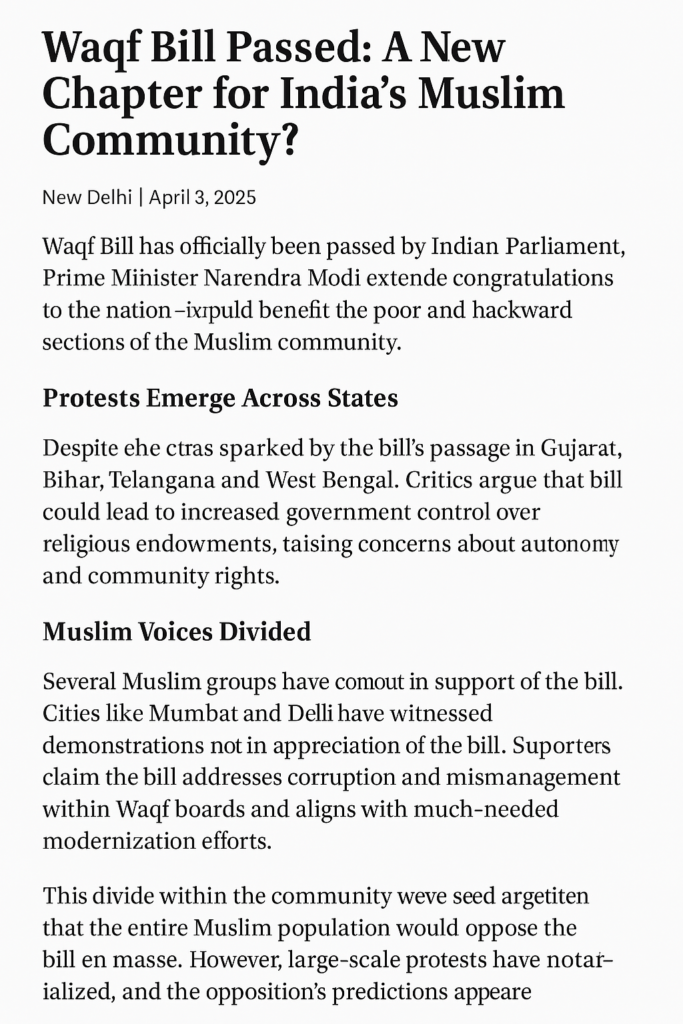New Delhi | April 2025 — The Waqf Bill has officially been passed by the Indian Parliament, setting the stage for major reforms in the management of Waqf properties across the country.
Prime Minister Narendra Modi extended congratulations to the nation,
stating that the bill would benefit the poor and backward sections of the Muslim community.

Protests Emerge Across States
Despite the central government’s enthusiasm, the bill’s passage has sparked protests in states like Gujarat, Bihar, Telangana, and West Bengal. Critics argue that the bill could lead to increased government control over religious endowments, raising concerns about autonomy and community rights.
Muslim Voices Divided
In an unexpected development, several Muslim groups have come out in support of the bill. Cities like Mumbai and Delhi have witnessed demonstrations not in opposition, but in appreciation of the bill. Supporters claim the bill addresses corruption and mismanagement within Waqf boards and aligns with much-needed modernization efforts.
This divide within the community contrasts sharply with the opposition parties’ earlier claims, which suggested that the entire Muslim population would oppose the bill en masse. However, large-scale protests have not materialized, and the opposition’s predictions appear to have fallen flat.
Déjà Vu: The Triple Talaq Comparison
This scenario mirrors the Triple Talaq Bill episode, where similar concerns were raised. Despite initial resistance, the law led to a 96% reduction in triple talaq cases, significantly improving the lives of Muslim women. Much like then, opposition leaders have once again turned to the Supreme Court for intervention.
Legal Challenge Begins
AIMIM chief Asaduddin Owaisi was the first to challenge the bill in court, followed closely by a Congress leader from Bihar. More legal petitions are expected in the coming days. Now, the spotlight is firmly on the Supreme Court, whose verdict will shape the legal and political discourse moving forward.
Muted Response or Miscalculation?
Interestingly, many political analysts believe the opposition is more agitated than the average Muslim citizen. The mass mobilization they hoped for has not occurred. While limited protests have taken place—such as post-Friday prayers in Karnataka and Assam—they have been sporadic and non-violent.
Some commentators have even questioned the nature of these gatherings, raising concerns that certain protestors may be using religious settings to incite unrest rather than for spiritual purposes.
Opposition Rhetoric vs. Reality
This isn’t the first time opposition leaders have overestimated community backlash. During the Ram Mandir ruling and construction, warnings were issued that Muslims would revolt and that Islamic countries would sever ties with India. On the contrary, seven Islamic nations, including Palestine, have since awarded Prime Minister Modi with their highest civilian honors.
Conclusion
As the Waqf Bill now undergoes judicial scrutiny, the nation watches closely. The outcome will not only determine the bill’s future but also set a precedent for how India handles sensitive reforms involving religion, politics, and community welfare.
